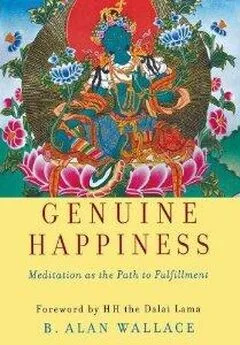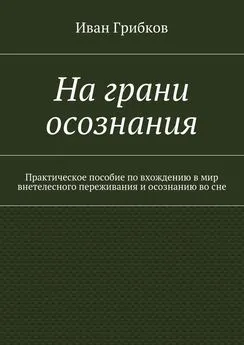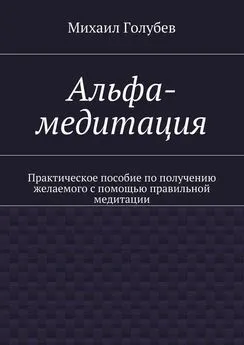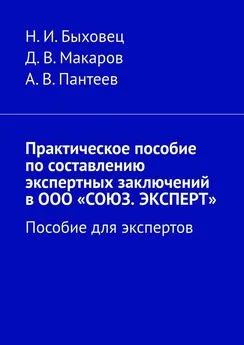Денни Пенман - Осознанная медитация. Практическое пособие по снятию боли и стресса
- Название:Осознанная медитация. Практическое пособие по снятию боли и стресса
- Автор:
- Жанр:
- Издательство:Манн Иванов Фербер
- Год:2014
- Город:Москва
- ISBN:978-5-00057-221-4
- Рейтинг:
- Избранное:Добавить в избранное
-
Отзывы:
-
Ваша оценка:
Денни Пенман - Осознанная медитация. Практическое пособие по снятию боли и стресса краткое содержание
Авторы книги – Видьямала Берч, соучредитель международной компании, специализирующейся на осознанной медитации, и Денни Пенман, доктор биохимии, научный журналист.
На русском языке публикуется впервые.
Осознанная медитация. Практическое пособие по снятию боли и стресса - читать онлайн бесплатно полную версию (весь текст целиком)
Интервал:
Закладка:
12
Jha A., et al. (2007). ‘Mindfulness training modifies subsystems of attention’. Cognitive Affective and Behavioral Neuroscience, 7, pp. 109–119; Tang Y. Y., Ma Y., Wang J., Fan Y., Feng S., Lu Q., et al. (2007). ‘Short-term meditation training improves attention and selfregulation’. Proceedings of the National Academy of Sciences (US), 104 (43), pp. 17152–6; McCracken L. M. & Yang S. – Y. (2008). ‘A contextual cognitive-behavioral analysis of rehabilitation workers’ health and well-being: Influences of acceptance, mindfulness and values-based action’. Rehabilitation Psychology, 53, pp. 479–85; Ortner C. N. M., Kilner S. J. & Zelazo P. D. (2007). ‘Mindfulness meditation and reduced emotional interference on a cognitive task’. Motivation and Emotion, 31, pp. 271–283; Brefczynski-Lewis J. A., Lutz A., Schaefer H. S., Levinson D. B. & Davidson R. J. (2007). ‘Neural correlates of attentional expertise in long-term meditation practitioners’. Proceedings of the National Academy of Sciences (US), 104 (27), pp. 11 483–11 488.
13
Brown Kirk Warren, Ryan Richard M. (2003). ‘The benefits of being present: Mindfulness and its role in psychological well-being’. Journal of Personality and Social Psychology, 84 (4), pp. 822–48; Lykins Emily L. B. & Baer Ruth A. (2009). ‘Psychological Functioning in a Sample of Long-Term Practitioners of Mindfulness Meditation’. Journal of Cognitive Psychotherapy, 23 (3), pp. 226–241.
14
Ivanowski B. & Malhi G. S. (2007). ‘The psychological and neurophysiological concomitants of mindfulness forms of meditation’. Acta Neuropsychiatrica, 19, pp. 76–91; Shapiro S. L., Oman D., Thoresen C. E., Plante T. G. & Flinders T. (2008). ‘Cultivating mindfulness: effects on well-being’. Journal of Clinical Psychology, 64 (7), pp. 840–62; Shapiro S. L., Schwartz G. E. & Bonner G. (1998). ‘Effects of mindfulness-based stress reduction on medical and premedical students’. Journal of Behavioral Medicine, 21, pp. 581–599.
15
См. NICE Guidelines for Management of Depression (2004, 2009). Ma J. & Teasdale J. D. (2004). ‘Mindfulness-based cognitive therapy for depression: Replication and exploration of differential relapse prevention effects’. Journal of Consulting and Clinical Psychology, 72, pp. 31–40; Segal Z. V., Williams J. M. G. & Teasdale J. D. Mindfulness-based Cognitive Therapy for Depression: a new approach to preventing relapse (Guilford Press, 2002); Kenny M. A. & Williams J. M. G. (2007). ‘Treatment-resistant depressed patients show a good response to Mindfulness-Based Cognitive Therapy’. Behaviour Research & Therapy, 45, pp. 617–25; Eisendraeth S. J., Delucchi K., Bitner R., Fenimore P., Smit M. & McLane M. (2008). ‘Mindfulness-Based Cognitive Therapy for Treatment-Resistant Depression: A Pilot Study’. Psychotherapy and Psychosomatics, 77, pp. 319–20; Kingston T., et al. (2007). ‘Mindfulness-based cognitive therapy for residual depressive symptoms’. Psychology and Psychotherapy, 80, pp. 193–203.
16
Bowen S., et al. (2006). ‘Mindfulness Meditation and Substance Use in an Incarcerated Population’. Psychology of Addictive Behaviors, 20, pp. 343–347.
17
Hölzel B. K., Ott U., Gard T., Hempel H., Weygandt M., Morgen K. & Vaitl D. (2008). ‘Investigation of mindfulness meditation practitioners with voxel-based morphometry’. Social Cognitive and Affective Neuroscience, 3, pp. 55–61; Lazar S., Kerr C., Wasserman R., Gray J., Greve D., Treadway M., McGarvey M., Quinn B., Dusek J., Benson H., Rauch S., Moore C. & Fischl B. (2005). ‘Meditation experience is associated with increased cortical thickness’. NeuroReport, 16, pp. 1893–1897; Luders Eileen, Toga Arthur W., Lepore Natasha & Gaser Christian (2009). ‘The underlying anatomical correlates of long-term meditation: Larger hippocampal and frontal volumes of gray matter’. Neuroimage, 45, pp. 672–678.
18
Tang Y., Ma Y., Wang J., Fan Y., Feg S., Lu Q., Yu Q., Sui D., Rothbart M., Fan M. & Posner M. (2007). ‘Short-term meditation training improves attention and self-regulation’. Proceedings of the National Academy of Sciences, 104, pp. 17 152–17 156.
19
Davidson R. J. (2004). ‘Well-being and affective style: Neural substrates and biobehavioural correlates’. Philosophical Transactions of the Royal Society, 359, pp. 1395–1411.
20
Lazar S., Kerr C., Wasserman R., Gray J., Greve D., Treadway M., McGarvey M., Quinn B., Dusek J., Benson J., Rauch S., Moore C. & Fischl B. (2005). ‘Meditation experience is associated with increased cortical thickness’. Neuro Report, 16, pp. 1893–1897.
21
Davidson R. J., Kabat-Zinn J. Schumacher J., Rosenkranz M., Muller D., Santorelli S. F., Urbanowski F., Harrington A., Bonus K. & Sheridan J. F. (2003). ‘Alterations in brain and immune function produced by mindfulness meditation’. Psychosomatic Medicine, 65, pp. 564–70; Tang Y., Ma Y., Wang J., Fan Y., Feg S., Lu Q., Yu Q., Sui D., Rothbart M., Fan M. & Posner M. (2007). ‘Short-term meditation training improves attention and self-regulation’. Proceedings of the National Academy of Sciences, 104, pp. 17 152–17 156.
22
Epel Elissa, Daubenmier Jennifer, Tedlie Moskowitz Judith, Folkman Susan & Blackburn Elizabeth (2009). ‘Can Meditation Slow Rate of Cellular Aging? Cognitive Stress, Mindfulness, and Telomeres’. Annals of the New York Academy of Sciences, 1172; Longevity, Regeneration, and Optimal Health Integrating Eastern and Western Perspectives, pp. 34–53.
23
Walsh R. & Shapiro S. L. (2006). ‘The meeting of meditative disciplines and Western psychology: A mutually enriching dialogue’. American Psychologist, 61, pp. 227–239.
24
Walsh R. & Shapiro S. L. (2006). ‘The meeting of meditative disciplines and Western psychology: A mutually enriching dialogue’. American Psychologist, 61, pp. 227–239.
25
Kabat-Zinn J., Lipworth L., Burncy R. & Sellers W. (1986). ‘Fouryear follow-up of a meditation-based program for the self-regulation of chronic pain: Treatment outcomes and compliance’. Clinical Journal of Pain, 2, p. 159; Brown Christopher A., Jones Anthony K. P. (2013). ‘Psycho biological Correlates of Improved Mental Health in Patients With Musculoskeletal Pain After a Mindfulness-based Pain Management Program’. Clinical Journal of Pain, 29 (3), pp. 233–44; Lutz Antoine, McFarlin Daniel R., Perlman David M., Salomons Tim V. & Davidson Richard J. (2013). ‘Altered anterior insula activation during anticipation and experience of painful stimuli in expert meditators’. Journal Neuro Image, 64, pp. 538–546.
26
Baliki Marwan N., Bogdan Petre, Torbey Souraya, Herrmann Kristina M., Huang Leijan, Schnitzer Thomas J., Fields, Howard L. &, Vania Apkarian A. (2012). ‘Corticostriatal functional connectivity predicts transition to chronic back pain’. Nature Neuroscience, 15, pp. 1117–1119.
27
См. Уильямс М., Пенман Д. Осознанность: как обрести гармонию в нашем безумном мире.М.: Манн, Иванов и Фербер, 2014.
28
Wall Patrick D. & Ronald Melzack. The Challenge of Pain (Penguin Books, 1982), p. 98; Melzack R. Wall, p. D. (1965). ‘Pain Mechanisms: a new theory, Science, 150 (3699), pp. 371–379.
29
Cole Frances, Macdonald Helen, Carus Catherine & Howden-Leach Hazel. Overcoming Chronic Pain (Constable & Robinson, 2005), p. 37; Bond M., Simpson K. Pain: Its Nature and Treatment (Elsevier, 2006), p. 16, offers an alternative definition from the International Association for the Study of Pain as acute pain (lasting less than one month), sub-acute pain (lasting one to six months) and chronic pain (lasting six months or more).
30
‘Health Survey for England 2011, Health, social care and lifestyles, Chapter 9 Chronic Pain, The Information Centre (NHS) 20 December 2012, www.ic.nhs.uk/catalogue/PUB09300.
31
Gaskin Darrell J. & Richard Patrick (2012). ‘The Economic Costs of Pain in the United States’. Journal of Pain, 13 (8), p. 715.
32
‘Health Survey for England 2011’, Health, social care and lifestyles, Chapter 9 Chronic Pain, The Health and Social Care Information Centre (NHS) 20 December 2012, www.ic.nhs.uk/catalogue/PUB09300.
33
NOP Pain Survey (2005), 23–25 September, on behalf of the British Pain Society.
34
Ploghaus Alexander, Narain Charvy, Beckmann Christian F., Clare Stuart, Bantick Susanna, Wise Richard, Matthews Paul M., Nicholas J., Rawlins P. & Tracey Irene (2001). ‘Exacerbation of Pain by Anxiety Is Associated with Activity in a Hippocampal Network’. Journal of Neuroscience, 21 (24), pp. 9896–9903.
35
Zeidan Fadel, Martucci, Katherine T., Kraft Robert A., Gordon Nakia S., McHaffie John G. & Coghill Robert C. (2011). ‘Brain Mechanisms Supporting the Modulation of Pain by Mindfulness Meditation’. Journal of Neuroscience, 31 (14), pp. 5540–5548. See also the accompanying comments regarding morphine effectiveness by Fadel Zeidan of the Wake Forest University School of Medicine at http://ow.ly/i8rZs.
36
Donna Farhi. The Breathing Book, (Harry Holt and Company, 1996).
37
Roberts Monty. The Man Who Listens to Horses (Arrow Books, 1997).
38
Zindel V. Segal, J. Mark G. Williams, John Teasdale. Mindfulness-Based Cognitive Therapy for Depression: A New Approach to Preventing Relapse. The Guildford Press (New York), 2002.
39
Zindel V. Segal, J. Mark G. Williams, John Teasdale. Mindfulness-Based Cognitive Therapy for Depression: A New Approach to Preventing Relapse. The Guildford Press (New York), 2002.
40
Zeidan F., Grant J. A., Brown C. A., McHaffie J. G., Coghill R. C. (2012). ‘Mindfulness meditation-related pain relief: Evidence for unique brain mechanisms in the regulation of pain’, Neuroscience Letters 520, pp. 165–173. See also: Brown C. A., Jones A. K. P. ‘Meditation experience predicts less negative appraisal of pain: Electrophysiological evidence for the involvement of anticipatory neural responses’. PAIN (2010), doi:10.1016/j.pain.2010.04.017. See also its accompanying commentary by Buhle J. (2010). ‘Does meditation training lead to enduring changes in the anticipation and experience of pain?’ PAIN 150, pp. 382–383.
41
Dickstein Ruth, Deutsch Judith E. (2007). ‘Motor Imagery in Physical Therapist Practice’. Physical Therapy, 87 (7). American Physical Therapy Association, July 2007, pp. 942–953.
42
В качестве примера см.: Desbordes Gaële, Negl Lobsang T., Pace Thaddeus W. W., Wallace B. Alan, Raison Charles L., & Schwartz Eric L. (2012). ‘Effects of mindful-attention and compassion meditation training on amygdala response to emotional stimuli in an ordinary, non-meditative state’. Frontiers in Human Neuroscience Journal, 6:29, doi:10.3389/fnhum.2012.00292.
43
Hanson R. Buddah’s Brain: The Practical Neuroscience of Happiness, Love and Wisdom, (New Harbinger Publications, 2009).
Читать дальшеИнтервал:
Закладка:










